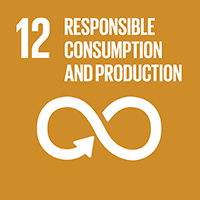Conceptual and institutional advice to the Lake Chad Basin Commission
The project “Conceptual and Institutional Advice to the Lake Chad Basin Commission” (LCBC) is part of the GIZ programme “Applied Water Resources Management in the Lake Chad Basin II”, implemented on behalf of the German Federal Ministry for Economic Cooperation and Development (BMZ). The project strengthens the Lake Chad Basin Commission in its role as a regional advisory body for the sustainable management of transboundary water resources. It supports the LCBC in advising its member countries on environmentally sound, climate-resilient, gender-sensitive and conflict-reducing approaches to water resources management.
The ultimate beneficiaries are the approximately 45 million people living in the Lake Chad Basin, with a particular focus on the 7.5 million inhabitants of the Logone sub-basin. The direct target groups are the management and staff of the LCBC, as well as representatives of its member states and partner platforms. These platforms bring together actors from government, civil society, the private sector and training institutions.
As the only regional organisation in the Lake Chad Basin mandated to connect governmental, civil society and private actors, the LCBC plays a key role in integrated water resources management (IWRM) and in preventing conflicts over natural resources. However, limited institutional capacities - especially in data exchange, analysis and use - currently constrain its advisory function. The project works closely with the LCBC Executive Secretariat to address these gaps and supports the practical implementation of measures in the Logone and Komadougou-Yobé sub-basins.
The project focuses on three main outputs:
- Strengthened management and steering tools enabling the LCBC to effectively advise its member countries at central level
- Established partner platforms in transboundary sub-basins with gender-equitable representation of interests
- Enhanced capacities of local actors in the Logone sub-basin to adapt to climate change and reduce conflicts over natural resources, with LCBC support
GFA is responsible for achieving the first two outputs. For participatory conflict mapping (“hotspot maps”) developed with the partner platforms, GFA cooperates with the Federal Institute for Geosciences and Natural Resources (BGR), Germany’s central geoscientific authority, which implements a complementary module within the development cooperation programme.







